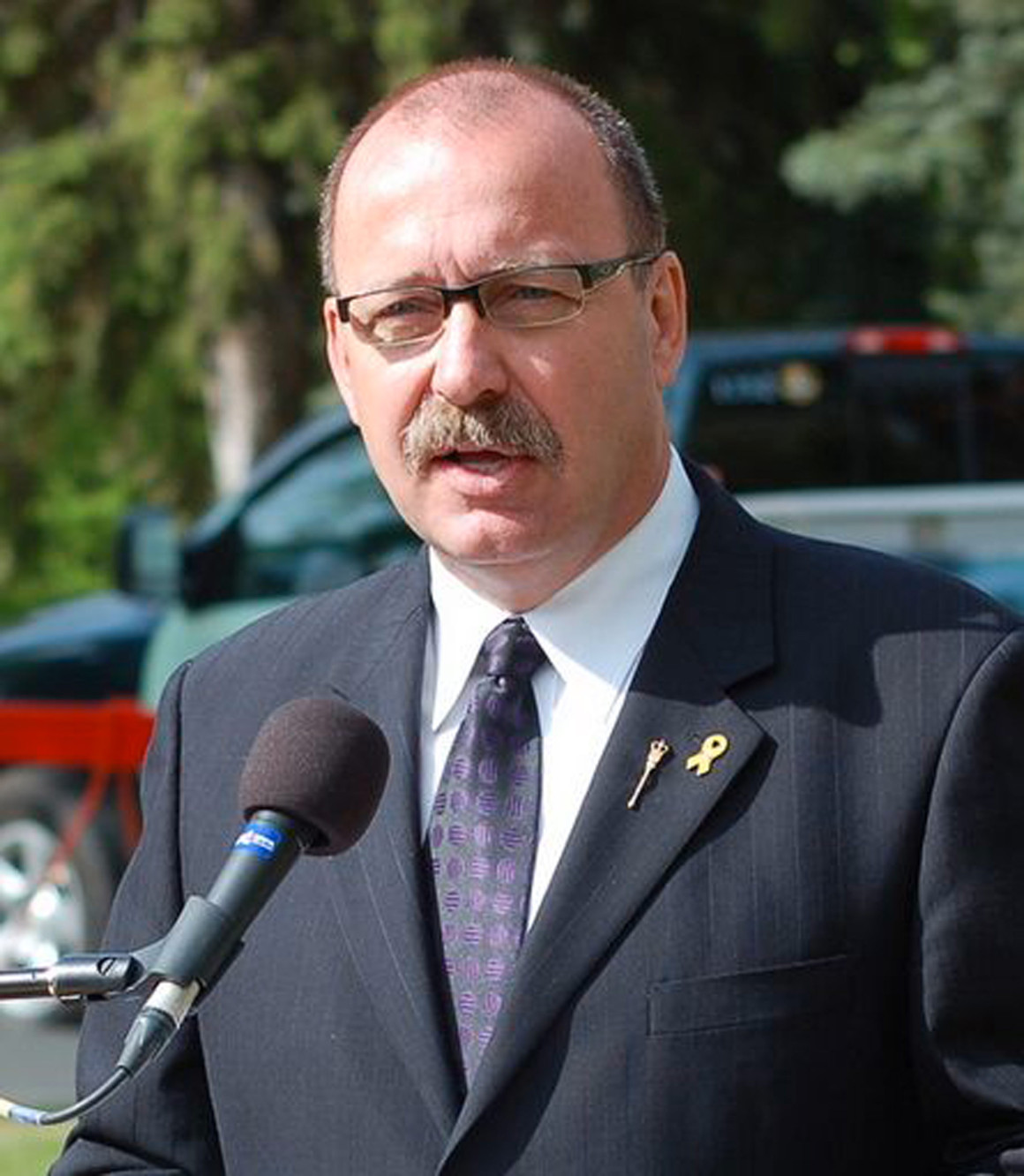
PC leadership hopeful Ric McIver talks about his bid for the Premiership with the Gauntlet
By Chris Adams, July 31, 2014 —
Three provincial politicians have battled for the Progressive Conservative leadership since Allison Redford resigned as Premier this spring. The Gauntlet first interviewed candidates Jim Prentice and Thomas Lukaszuk. We finish our candidate Q&A series with leadership candidate Ric McIver.
As Calgary-Hays MLA, McIver has served as minister of transportation and minister of infrastructure since assuming office in April 2012. Before provincial politics, McIver was the city councillor for ward 12 from 2001–10.
His platform includes plans to track high-risk offenders using GPS and removing “speed-on-green” cameras at intersections, calling them tax collection devices.
He ran into trouble this June when he was photographed at the March for Jesus — an event whose organizers are openly homophobic. McIver denounced March for Jesus’s homophobic rhetoric after the event.
The Gauntlet spoke with McIver about post-secondary education, Alberta’s economic outlook and March for Jesus.
The Gauntlet: How would you shape the relationship between post-secondary education and the provincial government as Premier?
Ric McIver: I think most post-secondary schools are a little like me. I don’t like surprises much, and I wouldn’t be surprised if post-secondary schools haven’t enjoyed the surprises they’ve had in the past either. I think what we need is a respectful two-way dialogue that includes the fewest surprises.
Post-secondary institutions rely on the government of Alberta for a big portion of their funding. The more predictable and sustainable we can make that the better it is for all involved.
How about the relationship between the private sector and universities?
Essentially all the money that’s in the public sector originated in the private sector. While there are certain things the public sector needs to do, we need to make sure that we can only continue to do that with a healthy private sector.
We need to make sure government regulation does two things. It requires the public sector to keep the environment and people safe. But the other thing we need to do is make sure the private sector has a great chance not only to survive, but to thrive and provide jobs, careers, research and capital investment that’s going to be required to keep Alberta a great place to live.
Should public institutions have complete autonomy over funds donated from the private sector?
Well, complete autonomy is a big word.
Let me say this, the private sector should not run the institutions. The people that are on the boards of the institutions must always be the ones to make the decisions about how the institution runs and what things they choose to do and what things they choose not to do.
Now that doesn’t necessarily preclude research partnerships with the private sector. It doesn’t necessarily preclude the private sector paying the university to test some of their technology. As long as you stick to the principle that the private sector wants to contribute to post-secondary activities, it comes with the understanding that management decisions never come along with that.
How do you see Alberta’s economy taking shape over the next few years?
The Alberta people are very industrious. That’s part of the reason we’re in such good shape now.
Part of my strategy is to make sure we have great transportation links. The four major things Alberta produces are energy, forestry, agriculture and tourism. We need to make sure [we can get] the first three items [to market] because Albertans produce way more of those things than Albertans can consume.
I intend to increase the legislative plan to eliminate the debt make sure our economy stays competitive.
What is your strategy to get Northern Gateway approved in British Columbia?
I think it’s about personal relationships. I have a strong track-record of getting deals that have been considered impossible completed. Starting back at my time in city council, negotiating the annexation with the municipal district of Rocky View. Nobody thought we could get an agreement there without going to court. After 10 years of not having success, I joined the negotiating committee. It wasn’t very long before we had a handshake agreement.
I can get people to agree to things that others have not been able to. Not exclusively by, but by recognizing everybody’s needs at the table to make sure all parties at the table win.
Do you think that strategy would work with a group like Coastal First Nations who say they won’t allow Northern Gateway to get built?
I don’t know if it’s enough, but I will say I think it’s the only thing that’s going to work. I’ve never really been interested in forcing people to do what they don’t want to do. The other alternative is to actually listen to them, genuinely work with them, genuinely bring forth solutions where we all recognize the other parties needs and all do our best to meet the other party’s needs while meeting our own. I think that’s the only path to success.
The fact is, unless you genuinely take an attitude of friendship into the negotiation and take a strategy of meeting the other party’s needs while meeting your own, you’ll never succeed.
Pastor Artur Pawlowski — organizer of Calgary’s Street Church and March for Jesus — endorsed your campaign recently, even after you denounced their homophobic views. What does continued support from these organizations mean for your campaign?
I’m just trying to become the Premier of Alberta. I am certainly proud of my faith. I have a long track-record of supporting all Albertans of every diverse nature — race, creed, colour, religion, sexual orientation — because all Albertans are equal. I would say to your readers that they can depend upon me as Premier to always do that.
What I can not control is what other people say and do and what other people put on their website.
